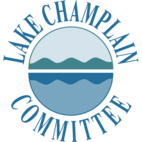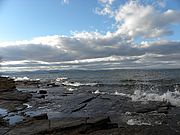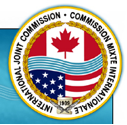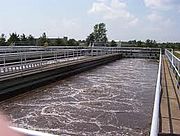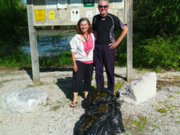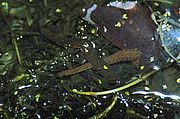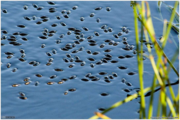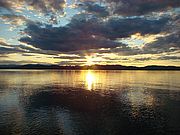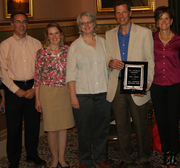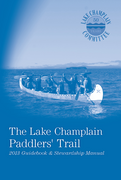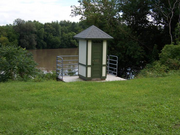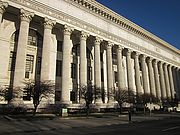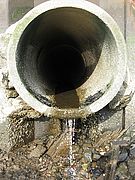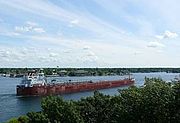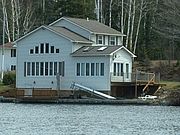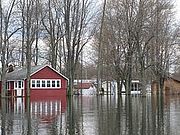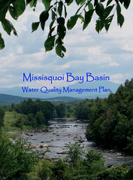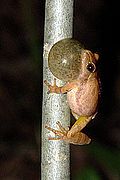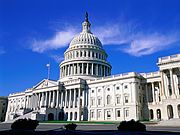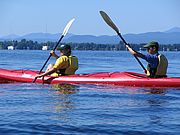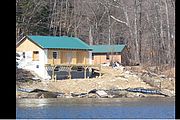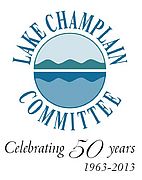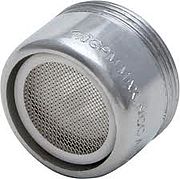On Facebook? We are too! 'Like' LCC's Facebook page for engaging content, the latest lake news, and beautiful lake photos. Here's how to like the Lake Champlain Committee on Facebook. MORE Read...
News from Selected Category
No algae blooms reported from 10 LCC monitoring locations. MORE Read...
The International Joint Commission (IJC) delivered recommendations to Canada and the United States in late July regarding a Plan of Study for flooding in the Lake Champlain Richelieu River basin. They called for a $14.3 million dollar boondoggle that would rehash issues previously studied in 1937 and 1981. MORE Read...
In early August, WCAX reported that a worker error led to discharge of a half-million gallons of untreated sewage to the Winooski River from the Essex Junction wastewater treatment plant. The incident was one of at least thirty cases of sewage overflows in Vermont this year. MORE Read...
In mid-August, LCC members Joan and Pete Smith joined Staff Scientist Mike Winslow to harvest the invasive European frog-bit from a bay east of Dead Creek on Missisquoi Bay. Together they brought in approximately 900 plants! MORE Read...
A team of student interns working with NASA has developed a model that interprets data collected from satellites to detect and track algae blooms on Lake Champlain. The three young researchers, Tiffani Orne from Liberty University, Hayley Solak from Clark University, and Sam Weber from Virginia Tech, conducted their work from afar, under the guidance of Dr. Kenton Ross. MORE Read...
Leeches are related to earthworms. Once you get past the initial revulsion for the animals, you can begin to see a grace and elegance in the orange spotted flattened worms. Both earthworms and leeches are hermaphroditic. Like earthworms they have segmented bodies and lack a structural skeleton. MORE Read...
Late summer is the time to see this year’s crop of whirligig beetles, those watermelon seed sized insects that spin and spin on the water surface. The beetles congregate atop tranquil waters around docks or near shore vegetation. The whirligigs that emerge this time of year are newly hatched from eggs laid in the spring. MORE Read...
Annual memberships and donations fuel LCC's work for clean, accessible water. By joining LCC and giving each year you help protect and restore water quality, safeguard natural habitats, provide access, and educate and engage people in stewarding Lake Champlain. MORE Read...
We were delighted to receive the 2013 Green Mountain Power (GMP) Meeri Zetterstrom award at a May ceremony at the Vermont State House. “The Lake Champlain Committee has been an active, constructive force for the betterment of Lake Champlain and the entire Champlain Valley for half a century,” GMP President and CEO Mary Powell said in delivering the award. MORE Read...
The 2013 edition of the Paddlers' Trail guidebook is out! It’s jam-packed with important information for great adventures on the water including site descriptions and chartlets for 41 Trail locations (with access to over 600 campsites), launch site listings, natural history articles, safety and stewardship tips, equipment check lists and more! MORE Read...
The USGS is once again threatening to stop operating stream gages in the Champlain Basin. The notice on their website reads, “The U.S.Geological Survey (USGS) will discontinue operation of up to 375 streamgages nationwide due to budget cuts as a result of sequestration. Additional streamgages may be affected if partners reduce their funding to support USGS streamgages. MORE Read...
The Army Corps is notoriously slow in developing and implementing projects. The Champlain Canal is a disappointing example of their glacial pace. It’s been almost a year since the invasive spiny water flea was found in the Canal. It has taken that long for the Army Corps and the New York State Canal Corps to figure out what they need to study before they can erect any barriers to spreading the species to Lake Champlain. MORE Read...
The New York State Public Service Commission has approved construction of a high voltage direct current transmission line to deliver electricity from generating sources in Quebec to the New York City area. The original application was filed over three years ago and negotiations towards approval spanned almost 16 months. MORE Read...
The 2013 legislative session saw little progress on water quality despite starting out with a report from the Agency of Natural Resources about the substantial problems facing the state’s waterways and high price tag for addressing all the issues. MORE Read...
The New York State Assembly passed a bill that would extend by two years a moratorium on fracking in the state. However, the Senate continues to stall consideration of that bill and another that would end an industry exemption that stripped the designation ‘hazardous’ from fracking waste. Read...
The New York State Department of Environmental Conservation (NYS DEC) will begin collecting discharge reports of untreated and partially treated sewage from public wastewater systems. The new law requires notification of any discharges from publically owned waste water treatment works or sewer systems within two hours of discovery of the discharge. MORE Read...
A yellow scum often appears along the shores of Lake Champlain from late spring through early summer. Though the scum has the texture and consistency of an algae bloom it is actually pollen. While the pollen may be unsightly, its presence means there are many pine trees in the vicinity of the lake, and thus indicates a degree of health in the watershed. MORE Read...
Last July the manager of Sand Bar State Park in Milton, Vermont received a call that would greatly affect his summer. Someone whose family had visited on July 1, 2012 reported that two children who had been swimming later became ill. MORE Read...
Throughout the year, we will share a series of special feature articles in commemoration of the Lake Champlain Committee's 50-year anniversary. Here is the first one!
What do zip codes, the smiley face symbol, the Beatles, James Bond movies, push button phones, and the Lake Champlain Committee have in common? MORE Read...
One of LCC’s top legislative priorities in Montpelier this year has been the passage of a lakeshore protection bill. Currently, any shoreline zoning is left to local communities but only 20% of towns have taken advantage of such opportunities, leaving many of the states waters vulnerable to wanton development. Such a bill was drafted in the House Committee on Fish Wildlife and Water Resources. MORE Read...
On March 27 Cumberland Bay was officially removed from the list of New York’s toxic Superfund sites. De-listing represents the culmination of work undertaken over a decade ago, spearheaded by LCC. The original listing came about because of an accumulation of PCB-laden sludge in the bay. The sludge was directly deposited prior to the 1973 construction of the wastewater treatment facility in Plattsburgh. MORE Read...
How much effort should society spend in preparing for rare events? The answer surely depends on the scope of the event, its rarity, and damage or costs associated with preparations. So, with these criteria in mind let’s examine potential responses to the Lake Champlain flooding of 2011. MORE Read...
The Vermont Agency of Natural Resources has approved the Missisquoi Bay Basin water quality management plan. The Missisquoi watershed begins with mountain streams and gorges on the flanks of the Green Mountains and includes the pastoral meanderings of the Missisquoi River along the Canadian border. MORE Read...
On warm wet evenings from mid-March through April you can often find salamanders and woodland frogs creeping over the still cold ground. They travel from the woods where they hibernated to vernal pools and swamps where they will breed. In prime habitat multiple species of salamanders can be found: MORE Read...
Earlier this month, LCC Executive Director Lori Fisher teamed up on Capitol Hill with water advocates from across the country. In meetings with policy makers and legislative staff, she and water partners from Galveston Bay to Long Island Sound stressed the need for sustained national investment in our waterways. The gathering was part of the annual meeting the America's Great Waters Coalition. MORE Read...
We're at work on the 2013 edition of the Trail guide and other Trail promotional materials. If you have pictures and stories from your 2012 water outings that you haven't shared yet, we'd love to see and hear them. MORE Read...
The State of Vermont is considering legislation that would increase protection of lake shorelines. The Lake Champlain Committee supports this effort and has identified it as one of our top priorities for action coming out of the Agency of Natural Resources Act 138 report delivered to the legislature in January. MORE Read...
2013 marks LCC's 50th anniversary of working for clean water. In celebration of this special anniversary, longtime LCC member Cliff Landesman has offered a challenge to help us build LCC's Legacy Fund, our working endowment. The endowment generates perpetual annual income to support our ongoing work for drinkable water, swimmable beaches, and edible fish. MORE Read...
LCC, the US Environmental Protection Agency and other WaterSense partners are promoting a week focused on water conservation. Wasting water wastes energy and money and can contribute to lake pollution. Get a jump on the week by reviewing your water bills and seeing how much water you consume, then visit LCC's Water Conservation page or EPA's WaterSense site for additional water saving tips. MORE Read...
